Seven industry leaders share their best purchase ...
Years ago, PrintWeek had asked a print technologist what has been the best purchase ever made. The reply was inspired, "The red colour has actually the coolest temperature of all the known colours of the visible spectrum of light in the electromagnetic spectrum. And a device to measure colour is the best investment for a press factory."
Keeping that technology mantra in mind, Ramu Ramanathan put forth that question to seven industry leaders.
17 Sep 2021 | By Ramu Ramanathan
Aman Gulati of Galaxy Offset says, "Our best purchase is the land we bought for our factory". He said, "Due to that decision, today Galaxy is here to stay." The Gulatis of Galaxy procured a total area of one acre of land in Manesar in 2004 and 2015.
Established in 1992, Galaxy, a commercial, books and packaging printer, is a first-generation printing company started by Amit Gulati, one of the Gulati brothers. Right now, the Gulati trio – Aman, Amit and Vikas run the business under the guidance of their father, Satish Gulati. Aman Gulati handles finance and purchase; Amit Gulati handles sales and marketing; and Vikas Gulati handles planning and production for all production units.
In 2012, Galaxy diversified into packaging printing in Manesar. Gulati said the diversification was a game-changer, and later, the company brought its production under one roof in Manesar. Phase II of the factory was commissioned in 2017.
Aman Gulati, director at Galaxy, confirmed with PrintWeek that the packaging converter has purchased a seven-acre land for a new plant in Ghiloth, Rajasthan.
Meanwhile, Mumbai-based Mehul Shah, the proprietor of Onlooker Press, says, "It is the five-colour Komori Lithrone press (22 inches x 32 inches) that is the perfect size for our various jobs." The reason, according to Shah, is that it accommodates the full size of 20 inches x 30 inches paper."
Equipped with in-house designers and a fleet of automatic and semi-automatic machines, Onlooker Press in Mumbai has catered to print requirements for more than five decades. And the Lithrone suits all the notebooks and exercise books cover sizes which are produced at Onlooker Press. Shah adds, "In addition, the Lithrone permits an easy shift from duplex to paper."
EssCee Enterprises was born in 1999. It started by buying a second-hand lamination machine for job work. "That was how we began our first day at the company," says KR Chandrashekhar, Bachelor of Engineering (Mechanical), who, along with BV Shashidhar, a diploma holder in printing technology, are two partners in this firm.
When queried which was his best purchase, Chandrashekar of Esscee Enterprises says, "We would classify three machines as our best purchases at those particular points of time. Firstly, it was our Heidelberg five-colour with a coater printing machine." Prior to this machine, the team at Esscee Enterprises had to do separate passes for five-colour jobs, and as and when the coating was involved, it needed to be done offline. Chandrashekar of Esscee Enterprises said, "This machine really boosted up our production capacity and also improved the quality of the final output."
Chandrashekar of Esscee Enterprises added, "When we purchased our Bobst auto die-cutter machine." This kit helped in "fast conversion of printed sheets and enhanced productivity. Before this, Esscee was using seven manual punching machines. Today Esscee Enterprises have three Bobst auto die-cutter equipment.
Thirdly, Esscee focussed on its printing and punching capacity. Having enhanced multi-fold, the Esscee team didn't want a bottleneck situation at the carton pasting. So they procured a Bobst folder-gluer kit which, according to Chandrashekar, is "a very high-speed machine and helped us to replace five domestic-made folder-gluer machines being used." These three folder-gluers have paved the path to increase the capacity at Esscee Enterprises.
Born on 3 April 1974 in Kolkata, Mrinal Dhote is the third generation that helms the operations at Bharat Lithographing. The printing company was started by his grandfather Baliram Kisanji Dhote now run by Surendra Dhote, whom he dotingly calls "superman".
Dhote says, "I am born in a family of printers. I was born in a house where my residence was on the first floor and the factory on the ground floor. My dad always motivated me and made me fall in love with printing. So I would occasionally work night shifts in the factory."
Mrinal Dhote says, "The best purchase I have done was in 2018 when we bolstered our pre-press department with a CTCP kit. Dhote said, "it has helped us evolve and be independent."
Currently, the Kolkata-based printing company produces approximately a hundred plates daily. Dhote says, "We were already doing pre-press work but on an outsourcing basis. And so, Bharat Lithographing purchased another place very close to the present premise and started an independent unit with a team of five dedicated persons.
Dhote says, "It took us about three months to fine-tune our workflow and upgrade our software - we were up and running."
Vinay Nalawade, the CEO and director at Parakh Agro Industries (flexible packaging business in Pune), says his best purchase was "a piece of used European-make machinery - about 15 years of age - for barrier blown film and CI flexo printing. Nalawade says, "We purchased the 15-year-old machine at a low value - and it is the best purchase we have done for our factory." When asked why so, he says, "The machinery provides us maximum operational utilisation and efficiency with minimal stoppages, thus contributing to extremely high ROI."
Vinay Nalawade says, "I want to share with the packaging professionals in the Indian industry that a machine - old or new - does not make a difference. You need to have a team to make it more efficient."
R Narendra, managing director of Ramya Reprographic says “The initial best investment was our first Heidelberg four-colour with in-line coater in 2005. Those days no other press in Bangalore had a machine like this. This machine was loaded with so many auto features and it reduced our turn-around time drastically.
Throughout its growth, Ramya kept adding the latest kit on the pre-press and press front. Realising the importance of post-press technologies when the packaging division was introduced, “Ramya added auto laminate, auto die-cut and an auto QC machine. These have been a boon for us.'
How so? Well, Ramya went the conventional route when it came to post-press. It realised the importance of post-press technologies only when the packaging division was introduced. “We immediately shifted to the best post-press equipment which helped us to finish all the production activities in a short time,” says Narendra.
Recently, the company invested in an EasyMatrix. This was because Ramya Reprographic was unable to meet the required number of punched sheets per day with 15 manual platen machines. “It was a boon for us as all jobs are long-run and our operators are able to complete the production including make-ready sheets within 90 minutes at the most without much downtime,” says Narendra.
In March 2021, Trigon Digital installed the HP Indigo 25K to meet its growing flexible packaging demand. This was the first customer installation of the flagship HP Indigo 25K digital press across Asia. Anil Namugade, founder and CEO, Trigon Digital says, "Our new HP Indigo 25k latest purchase was not a quick decision." He adds, "The decision was placed, well in advance as part of our business strategy. It was just that we were waiting for the right time."
Namugade adds, "When e-commerce exploded in India, it was led by small and medium enterprises, who took advantage of the reach and scale of an online business. These businesses were innovating at a rapid pace. They were looking for a packaging converter partner, who could keep pace with their innovation and growth. That’s what fuelled the trend of short-run, quick turnaround projects." So, adding to Trigon's success with proofing and mock-ups for large customers, the company added "this exciting new emerging segment since it wanted to be a pioneer in creating a solution".
A leading print and packaging solutions provider with an all-digital setup, Trigon Digital has been addressing the needs of customers from across India, Middle East, Europe and South East Asia. The HP Indigo 25K installation with a 30-inches printing width will allow Trigon to venture into customised pouches, shrink sleeves, IML printing on a large scale. The machine features an inline slitting option, which will enable Trigon to print label media of up to 30-inches width and then slit inline to smaller rolls for further finishing.
Namugade says, "The journey of our success has not been without challenges. We have gone through a lot of turbulence, but we have always emerged stronger. As always, we will continue to align ourselves with the requirements of the customer and the market, with an eye on the future as we chart our growth."
He concludes, "We knew that the HP Indigo digital press would play a very important role in catering to customers’ needs and that has made us confident to invest in our future with digital at the core. There is always talk about the cost of converting to digital being too high, but our experience at Trigon has been the opposite. With the advent of e-commerce plus the future of print in the post-pandemic world, there is an opportunity for massive growth provided you keep innovating; and investing in technology. Digital print will be at the heart of business for most of our customers, and Trigon can’t be far away from it."
What is the best purchase you have made for your factory? Please share with charmiane.alexander@haymarketsac.com


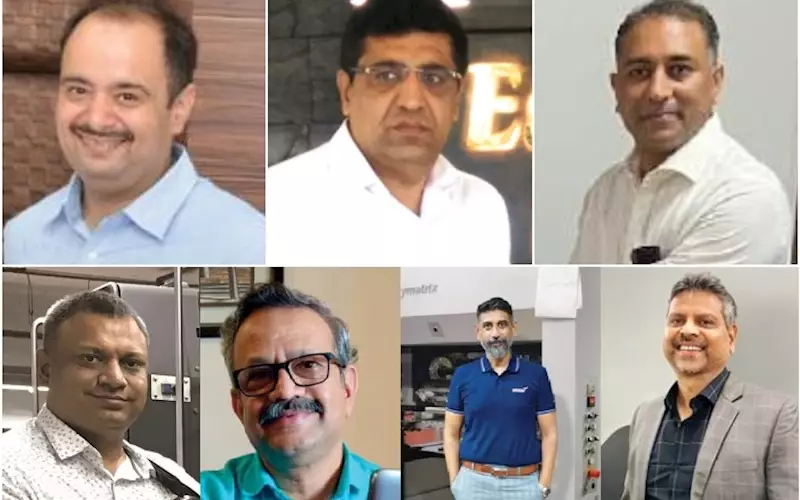
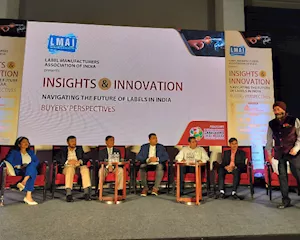
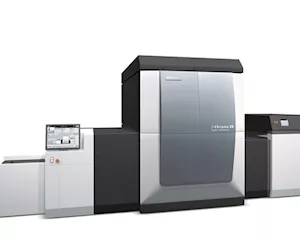
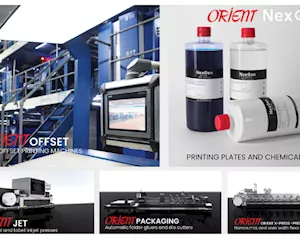
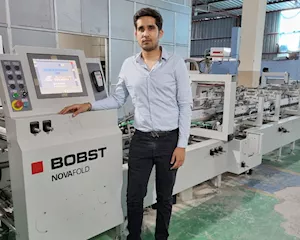
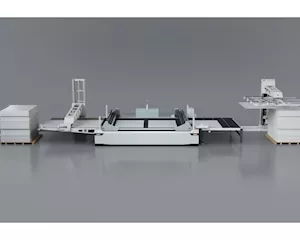






 See All
See All